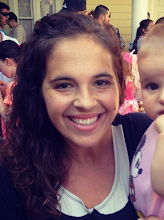
I've spent the last month almost (eek!) trying to find the aspects of two authors that make them similar enough to be clear - and at times I feel I'm grasping at straws. The most similar aspect of the two authors is their biography, but I'm writing about their literature. I've looked at themes, which may be stronger in one author or the other, and I'm left with the feeling that I'm trying to fake my way through the weaker one; I've looked at the development of their writing over the decades, but that turns into something that completely misses the mark; I've tried to put them in direct conversation with each other, since they were contemporaries and have dedicated / addressed each other at various times. But it seems like I've been trying to force a closer relationship than they feel comfortable with. Which doesn't mean I have to start over; it just means that I have to adjust my vision.
I think I've been taking the wrong approach. One wrote primarily memoir / autobiography / historical truth - as a Holocaust survivor, he found himself overwrought with the imperative to tell the truth for those who did not survive, knowing that his story would contradict the majority of Holocaust stories by the virtue of his survival. The other wrote fiction of all kinds: starting with neorealist fiction, he moved into the fantastical, the postmodern and the world of metafiction. The farther he went from reality, the more his critical eye became apparent. It is, I hope, through these two completely different approaches that I will be able to find a symbiotic relationship; even better, I would like to find the harmony between these two very different melodies.
The key may very well be the following statement:
The best way to read fiction is through history, and the best way to read history is through fiction.
Are the apple and the orange mutually exclusive?
Can they be both at once?


No comments:
Post a Comment